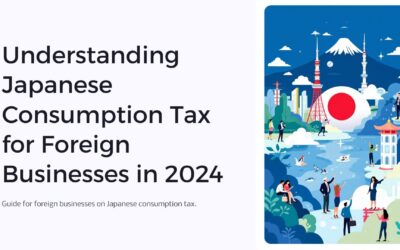Some of you may have a job as an import agent.
Checking how sales tax will be charged on those transactions is necessary when dealing with foreign countries.
In Japan, the sales tax is called the consumption tax, but for smooth understanding, I call it the sales tax, import consumption tax, Japanese Consumption Tax(JCT), or import tax. All are the same in this article.
We need to clarify who to pay the tax.
This is because sales tax is an unavoidable part of importing, and whether or not you are responsible for it directly impacts your business.
Who pays import sales tax?
Who has to pay the import consumption tax?
It must be paid by the person who took delivery of the goods.
Let us assume that you, importer A, are conducting this transaction.
B is the exporter, and F is the freight forwarder.
In the country where B exported, there is no Japanese consumption tax.
However, according to the article, A is supposed to pay consumption tax on imported items at the time of clearance.
Importing goods into Japan means that the goods are to be consumed in Japan.
Therefore, at the time of importation, F first pays the import consumption tax.
The person who receives the goods pays for it.
At this time, F’s journal entry looks like this.
| Date | (Dr.) | (Cr.) | ||
| Sept 7 | Advance | 50,000 yen | Cash | 50,000 yen |
And you, the recipient of this, pay this consumption tax and other expenses.
If the exporter pays the transportation costs, it is at least the freight handling fee.
| Date | (Dr.) | (Cr.) | ||
| Sept 10 | Input JCT Fee paid (non) | 50,000 yen 2,000 yen | Cash | 52,000 yen |
The amounts are provisional, but this is what it looks like.
If the importer takes delivery of the goods in Japan
Suppose you, A, now sell this product to C.
It is in the form of something like “CIP A warehouse.”
Yes, assume you purchased the product for 52,000 yen and sold it for 60,000 yen, excluding the consumption tax in Japan.
Then, you would charge this plus consumption tax.
| Date | (Dr.) | (Cr.) | ||
| Sept 10 | Accounts receivable | 66,000 yen | Sales Output JCT | 60,000 yen 6,000 yen |
Now, the consumption tax has been received and paid.
Suppose you have done this transaction 1,000 times.
The provisional consumption tax at the end of December is
| Date | (Dr.) | (Cr.) | ||
| Sept 12 | Output JCT Provisional JCT | 6,000,000 yen 44,000,000 yen | Input JCT | 50,000,000 yen |
Because of the large number of payments, the consumption tax receivable will be refunded shortly.
Note that there may be a way to eliminate this on-hand consumption tax burden earlier by separating the taxable periods.
In the case of a mere agent
What if this sale was a direct transfer from B to C?
What if it is a “CIP C warehouse?”
C should be written as the Consignee of the importer in this case.
In this case, since A is not involved in the delivery of the goods, it is not right to apply sales tax to the goods.
In addition, although it is a little subtle if the contract is written on the premise that international goods are to be delivered, it seems strange to apply consumption tax to the goods even if they are domestically produced.
This is a delicate area unless you have practical experience in trade.
In a transaction I have experienced, an importer aggressively charged sales tax despite international cargo delivery.
It is an excellent example of the relatively strange transactions found within trade from the standpoint of upholding tax laws.
Consumption tax is more complicated than advantageous or disadvantageous because money exchange occurs first.
It is a good idea to clarify what needs to be done at the point of contract.




